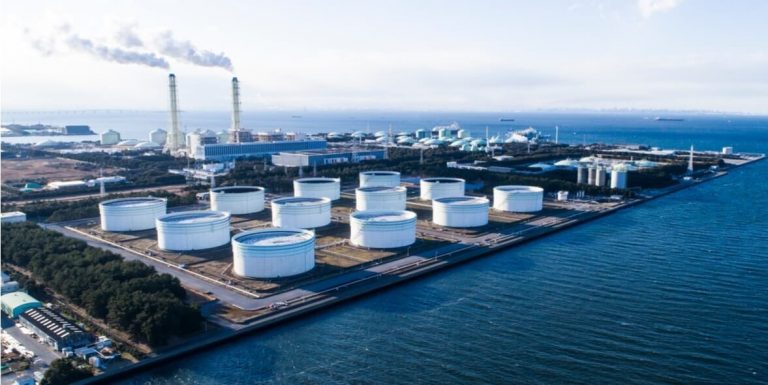
Portugal is set to deepen its reliance on Liquefied Natural Gas (LNG) supplies from Nigeria and the United States as part of its strategy to eliminate its already minimal dependence on Russian gas, according to Environment Minister Maria da Graça Carvalho.
At the World Economic Forum (WEF) in Davos, Carvalho emphasized the country’s commitment to bolstering energy independence amid ongoing geopolitical tensions.
Data from REN, Portugal’s electricity and gas grid operator, indicates that the country imported 49,141 gigawatt-hours (GWh) of natural gas in 2024, with 96% of these imports being LNG. Nigeria supplied the majority, accounting for 51% of Portugal’s LNG imports, while the United States contributed 40%. Russian LNG represented a mere 4.4%, a significant drop from the 15% share it held in 2021.
Register for Tekedia Mini-MBA edition 19 (Feb 9 – May 2, 2026).
Register for Tekedia AI in Business Masterclass.
Join Tekedia Capital Syndicate and co-invest in great global startups.
Register for Tekedia AI Lab.
This decline aligns with the broader European Union (EU) strategy to reduce dependence on Russian energy following the invasion of Ukraine in February 2022. While the EU imposed sanctions on Russian oil and pipeline gas, it has not yet banned LNG transported by ship, creating an opportunity for countries like Nigeria and the US to fill the supply gap.
Carvalho noted that Portugal has become “practically independent of Russian gas,” adding that the government aims to reduce Russian LNG imports to zero. She underscored the importance of diversifying energy sources, advocating for greater imports from Nigeria and the US.
The minister also called for increased cooperation within the EU to enhance energy security, citing the challenges faced by Iberia in building energy interconnections with France. Portugal and Spain, collectively known as the Iberian Peninsula, have often been described as an “energy island” due to limited gas and electricity links with the rest of Europe.
Global Energy Crisis: Nigeria’s Missed Opportunity
Portugal’s move to increase LNG imports from Nigeria and the US highlights a broader shift in Europe’s energy dynamics. As the EU seeks to phase out Russian energy, it is increasingly turning to alternative suppliers.
The Russian-Ukraine war has created an energy windfall for many oil-exporting nations. However, Nigeria has failed to capitalize on the situation due to the poor management of its oil and gas sector.
When the Russia-Ukraine conflict disrupted global energy markets, several EU delegations approached Nigeria to explore possibilities for ramping up production and increasing gas exports to the continent. Despite possessing one of the largest proven natural gas reserves in the world, Nigeria was unable to meet these expectations.
At the core of this failure is the inability of the Nigerian government to meet the Nigeria LNG Limited (NLNG) requirement for 3.5 billion standard cubic feet of gas daily. Current capacity utilization stands at a mere 65%, projected to drop to 44% when the NLNG Train 7 project becomes operational in 2025, raising installed capacity from 22 million tonnes per annum (mta) to 30 mta. This continued shortfall has forced Nigeria to operate under force majeure since October 2022.
Energy experts have linked this failure to a lack of foresight and poor management of the oil and gas sector. Kelvin Emmanuel, an energy analyst, noted the government’s inability to create a fiscal framework to incentivize international investment.
He explained, “The government’s failure to provide a fiscal framework for deep water fields that fall under the production-sharing contract model has limited institutional-level investments from International Oil Companies (IOCs) interested in participating in the global ramp-up of gas as a transition fuel. This is especially concerning since American IOCs like Chevron and ExxonMobil, which do not fall under the NLNG framework, have shown interest in such opportunities for natural methane gas to LNG, ethane, propane, and butane.”
However, after years of neglect, the Nigerian government has recently renewed its interest in the long-abandoned Brass LNG project. Originally conceived in 2006, the project was designed to produce 10 million tons per annum at full capacity, using a daily feedstock of 1.6 billion standard cubic feet of gas.
According to Emmanuel, the government must reconstitute the heads of agreement signed in 2003 to move forward.
“Given that ConocoPhillips has exited Nigeria, and Eni’s onshore business has new owners, it might be time to bring ExxonMobil and Chevron into the Brass LNG shareholding structure as a tool to incentivize them to invest in non-associated gas wells in deep water,” he said.
The renewed focus on Brass LNG aligns with the G-7 communique, which designates gas as a critical transition fuel. A successful implementation of this project could position Nigeria as a key player in the global energy transition and unlock significant economic potential.




Your writing style is so engaging and easy to follow. I couldn’t stop reading once I started your blog post!